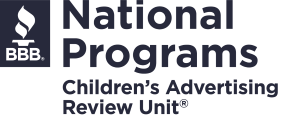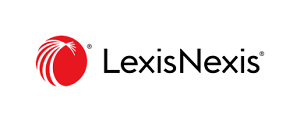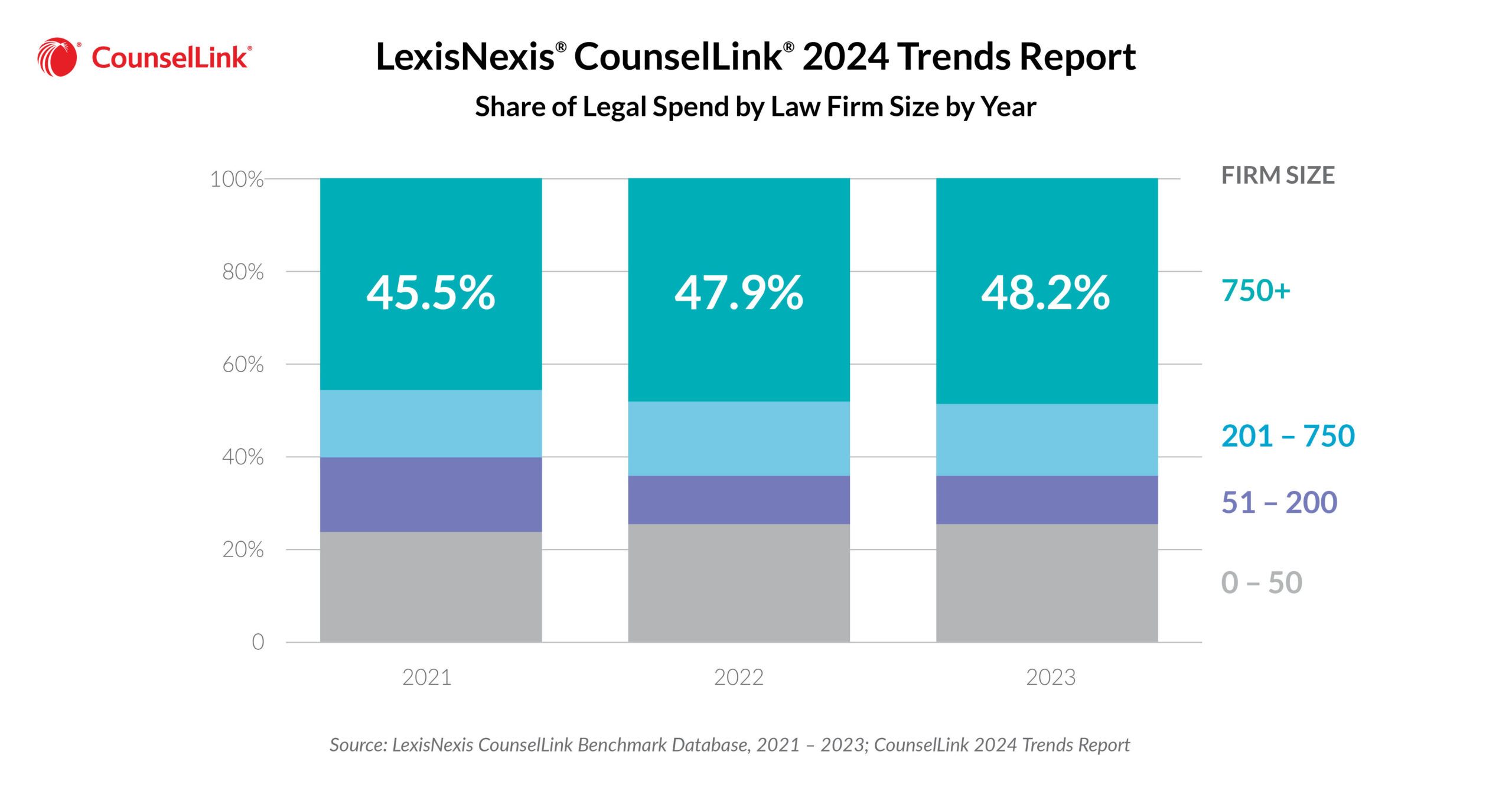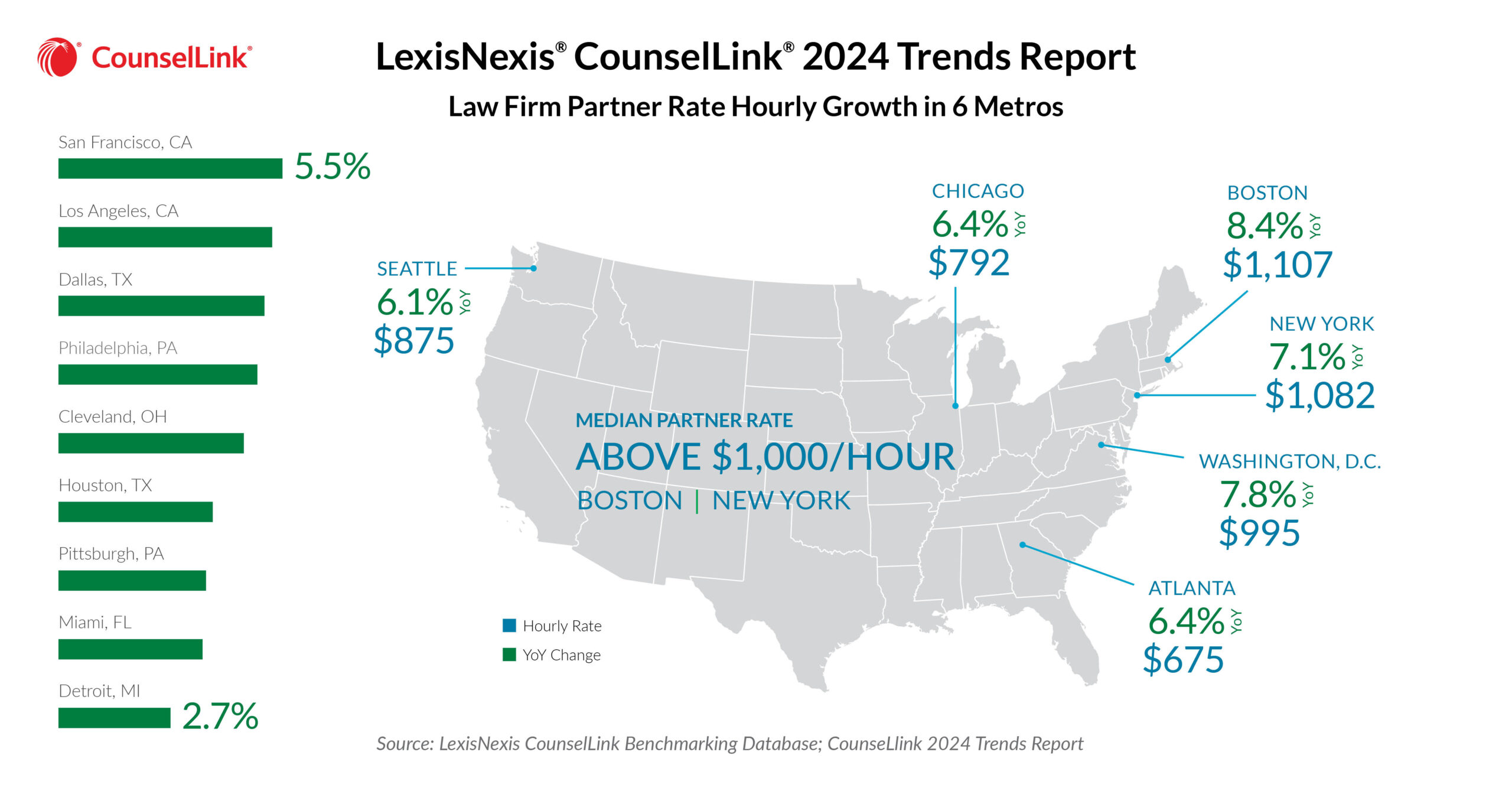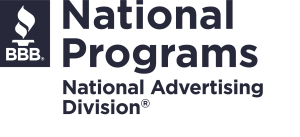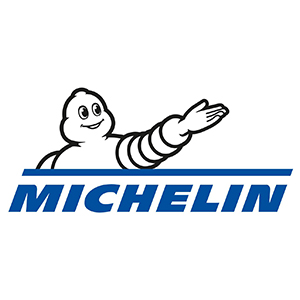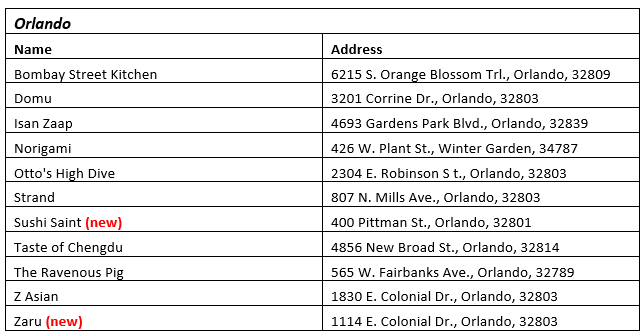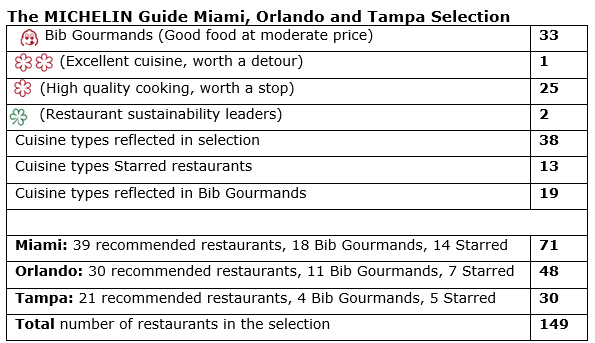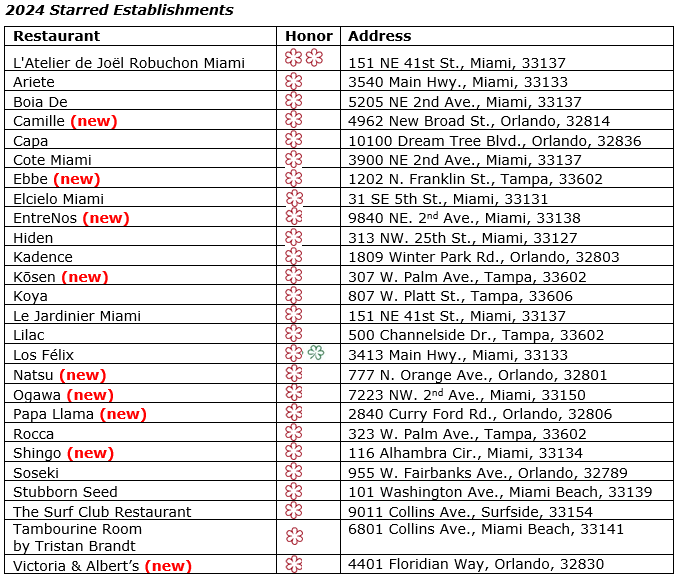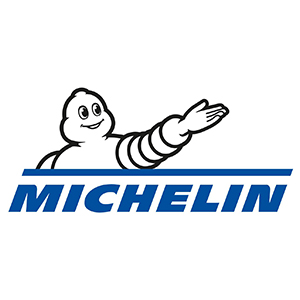
- For the first time, MICHELIN Key selection is landing in the USA, extending the MICHELIN Guide passion and expertise to
- Selected by the MICHELIN Guide inspection team, hotels offering the world’s most outstanding experiences are now bookable on the MICHELIN Guide digital platforms.
- The first MICHELIN Key US selection highlights 124 hotels
- The MICHELIN Guide’s ambition is to become the 1st global independent booking platform for outstanding restaurants and hotels.
NEW YORK, April 24, 2024 — After its inaugural announcement in France on April 8th, Michelin is pleased to unveil today its very first selection of hotels awarded MICHELIN Keys in the USA. 124 hotels have been awarded One, Two or Three MICHELIN Keys, highlighting the most outstanding experiences and stays in select locations throughout the country.
Hotels in Atlanta, California, Chicago, Colorado, Florida, New York and Washington D.C. — the US destinations where the MICHELIN Guide also recommends its restaurant selection — were eligible for the award.
Offering an ever more comprehensive service, the MICHELIN Guide’s hotel selection provides users with recommendations for a complete travel experience. Awarded by the MICHELIN Guide inspection team based on anonymous stays or visits – independently of existing labels, tourism stars and pre-established quotas – the MICHELIN Keys are a new international benchmark for travelers. They aim to guide them to accommodations that stand out for their unique hospitality concept, distinctive character, warm welcome and extremely high level of service.
124 establishments receive One Key, Two Keys or Three MICHELIN Keys in the USA
In this first US selection, and second selection worldwide, 124 accommodations have earned distinctions out of almost 1,000 hotels recommended by the MICHELIN Guide across the United States: 11 hotels received Three MICHELIN Keys, 33 Two MICHELIN Keys and 80 One MICHELIN Key.
This first US MICHELIN Key selections bring together establishments offering a wide variety of concepts, price ranges and geographical locations. Included are the chicest coastal retreats, the most relaxing, quiet hideaways, and the most spectacular urban oases.
Gwendal Poullennec, International Director of the MICHELIN Guide comments: “With this new distinction, the MICHELIN Guide has opened up a brand-new chapter in the service it provides for travelers, which has been its lifeblood for the past 124 years. Steadfast in our field-based approach, the MICHELIN Guide inspectors drew up this unprecedented list to share their best hotel experiences in the US. Every establishment awarded One, Two or Three MICHELIN Keys is a gem sculpted by talented professionals. Using the MICHELIN Guide digital platforms, travelers can filter their search and book awarded hotels for stays that we hope will be unforgettable.”
One, Two and Three MICHELIN Keys
Just like the famous Stars that indicate the best culinary experiences in the MICHELIN Guide restaurant selection, the MICHELIN Keys reveal accommodations in the Guide’s hotel selection that offer the most outstanding stays. They are a new benchmark for travelers, qualifying each hotel experience in broader terms than simple amenities.
One MICHELIN Key: a very special stay
This is a true gem with its own character and personality. It may break the mould, offer something different or simply be one of the best of its type. Service always goes the extra mile and provides significantly more than similarly priced establishments.
Two MICHELIN stars: an exceptional stay
Somewhere truly unique and exceptional in every way, where a memorable experience is always guaranteed. A hotel of character, personality and charm that’s operated with obvious pride and considerable care. Eye-catching design or architecture, and a real sense of the locale make this an exceptional place to stay.
Three MICHELIN Keys: an extraordinary stay
It’s all about astonishment and indulgence here – this is the ultimate in comfort and service, style and elegance. It is one of the world’s most remarkable and extraordinary hotels and a destination in itself for that trip of a lifetime. All the elements of truly great hospitality are here to ensure any stay will live long in the memory and hearts.
11 unique hotels receive Three MICHELIN Keys
Three MICHELIN Keys, indicating an extraordinary stay, worthy of a specific trip, have been presented to 11 hotels – 7 located in California, and 4 in New York City.
In Big Sur, California, Post Ranch Inn offers 39 rooms and houses located between the sea and the clouds in one of the most scenic areas on the California coastline. Each individual house, designed by the modernist architect Mickey Muennig, is perfectly fitting into its natural environment. Its Three Houses are built on nine-foot stilts and camouflaged amongst the redwood trees, when the Ocean Rooms are close to the cliff’s edge – and combine both luxury and modernity. Elsewhere in California, SingleThread Inn in Healdsburg offers one of the most luxurious experiences in the state. The 5 accomodations, with their modern-classic aesthetic, not only offer a memorable stay – they provide guests a guaranteed booking at the Three MICHELIN Star SingleThread restaurant. Run by chef Kyle Connaughton, a meal at SingleThread elevates the experience to the ultimate level, making the hotel worthy of a special trip. In Beverly Hills, The Beverly Hills Hotel, Dorchester Collection and its 210 rooms revitalize the famous Pink Palace, mixing modern amenities with 1940s Hollywood-classic décor.
In New York City, Casa Cipriani New York is a luxury boutique hotel nested in a 1906 former ferry terminal. The building, ornate in a Beaux- Arts style, is home to 47 rooms and suites that are remarkably restrained in their opulence, in contrast with the building’s exterior ornamentation. Those that face the river offer a view unlike any other hotel in town, and the hotel’s Jazz Café, modeled after a prewar supper club, is the perfect place to enjoy live music. Also in New York, Aman New York is a self-contained world of luxury right in the heart of Manhattan – for the Aman brand’s first foray into a big American city. Their suites, inspired by Japanese minimalism, are surrounded by facilities that include a garden terrace, a lounge bar, restaurants, even an intriguing speakeasy-style underground live performance venue. Service is ever-present and ever professional to accompany guests during their stay.
In total, 11 extraordinary hotels received Three MICHELIN Keys.
33 hotels receive Two MICHELIN Keys for exceptional stays
Indicating an exceptional stay, 33 hotels have been awarded Two MICHELIN Keys.
Within that category, travelers can find recommendations in California, Florida, Chicago, New York and D.C. With 18 hotels highlighted, California offers a variety of experiences. For example, Bernardus Lodge & Spa, is tucked into the pines and oaks of Carmel Valley, and the Lodge is remote enough to provide a measure of seclusion – yet remains just minutes from the picturesque town of Carmel-by-the-Sea. The hotel, also welcoming a first-class restaurant, is affiliated with the Bernardus winery and vineyard, allowing wine-lovers to enjoy an impressive cellar. The selection also offers exceptional experiences in San Francisco. For instance, The Battery, with just 14 rooms, is a particularly exclusive Club in a bohemian style. In West Hollywood, Chateau Marmont evokes the magic of a movie set. Constructed along the specifications of the Loire Chateau Amboise, it is a perfect eighteenth-century replica — where fluted pillars are graced by ivy.
Additionally, the selection includes stylish design hotels of which the best example, perhaps, is Faena Hotel Miami Beach. Created by the pioneering Argentinian hotelier Alan Faena, his colorful fantasies come to life with fascinating Art Deco details. A few miles away, at Four Seasons Hotel at The Surf Club, a legendary spot that first opened in 1930 is now augmented by modern structures. Travelers looking for the perfect location in Chicago will find the Peninsula Chicago. The third opening of the brand in the USA offers ever-present and attentive service in high tech rooms (and, on the Shanghai Terrace, one of Chicago’s top Chinese restaurants). In New York, Nine Orchard is nestled in the former Jarmulowsky Bank building. While retaining its century-old grandeur, the rooms opt for something a little more subdued: the classic architecture is complemented by muted colors and furnishings that are minimalist but warm, along with modern conveniences like custom-designed and custom-programmed sound systems.
80 hotels receive One MICHELIN Key
One MICHELIN Key recognizes a very special stay.
Among the 80 hotels that received One MICHELIN Key, there is great diversity both geographically and in terms of hospitality offerings. The luxurious bed & breakfast boutique hotel, San Luis Creek Lodge, for instance, is among the most perfectly relaxing. Designed by Nina Freudenberger, it is full of effortless bohemian-rustic details ‑ and is one of the most affordable hotels awarded the Key in 2024, starting at $320 per night. Larger in terms of number of rooms but no less affordable, with suites under $400, the Wythe Hotel, Brooklyn, exemplifies the character of the neighborhood with an admirable attention to detail. Its chefs serve delicacies inspired by Parisian and NYC favorites.
Several addresses offer holistic experience from bed to plate, including Hotel Jerome, Auberge Resorts Collection in Aspen, a swanky, classic city hotel located in the picturesque mountain town – and sporting its own restaurant in the MICHELIN Guide selection. The Ritz-Carlton NoMad provides the perfect balance of a classic luxury, accompanying an eastern mediterranean restaurant hosting the famous Chef José Andrès. Finally, at Ette Hotel, Orlando, a 126-room luxury boutique hotel with modern and minimalist rooms is completed by Lipa, a restaurant lead by well-known Chef Akira Back.
Honoring the architecture of the past century, some hotels are set in majestic architectural settings. Such is the case at The Gwen, a luxury Collection Hotel in Chicago, a contemporary boutique that captures the aesthetics of the 1920s and 30s with Art Deco accents and 21st century comforts. Or look to the Riggs Washington DC, the stylish and richly detailed hotel set in a 19th century Romanesque Revival bank building. In Santa Monica, freshly restored The Georgian has retained all traces of its great history and architecture.
For travelers willing to leave big cities behind them, Stanly Ranch, Auberge Resorts Collection, in Napa, is a jewel set in a 712-acre ranch rooted deep in California wine country. For a perfect winter escape, The Little Nell gives a cozy welcome to guests in Aspen.
Design lovers and art enthusiasts will enjoy Montage Laguna Beach, where the hotel pays conscious homage to the city’s birth as an artists’ colony ‑ its interiors are drenched in artwork, and the panoramic view on the ocean is a must see. Another veritable artists’ haven is the newly opened Hotel Chelsea New York, bringing NY’s historic charm into the modern era with an impressive, nostalgic authenticity. Chicago Athletic Association and its fantastic architecture is another landmark building – this one in Chicago ‑ redesigned by Roman and Williams to fit the historic space and play on its history. 1 Hotel South Beach Miami has an eco-friendly ethos and recycled/reclaimed décor for a brand with serious luxury- hotel chops.
All MICHELIN Guide hotel recommendations are available for free on the MICHELIN Guide website and mobile applications. On these digital platforms, all recommended hotels can be booked directly at the best available public rates. To assist travelers throughout their stay, the MICHELIN Guide also provides a concierge service run by travel experts employed by the MICHELIN Guide.
After France and the United States (Atlanta, California, Chicago, Colorado, Florida, New York, Washington DC), the MICHELIN Keys will be announced in Spain on April 29, Italy on May 7 and Japan on July 4, 2024. Other destinations will follow during the year.
MICHELIN Key hotels for other US destinations will be announced later this year.
Find the pictures of the Press Conference Announcement on the link here.
About Michelin
Michelin, the leading mobility company, is dedicated to sustainably enhancing its clients’ mobility; designing and distributing the most suitable tyres, services and solutions for its clients’ needs; providing digital services, maps, and guides to help enrich trips and travels and make them unique experiences; and developing high-technology materials that serve a variety of industries. Headquartered in Clermont-Ferrand, France, Michelin is present in
175 countries, has 132,200 employees and operates 67 tyre production facilities, which together produced around 167 million tires in 2022. (www.michelin.com).
For more information, contact:
Carly Grieff
Michelin North America
carly.grieff@michelin.com
